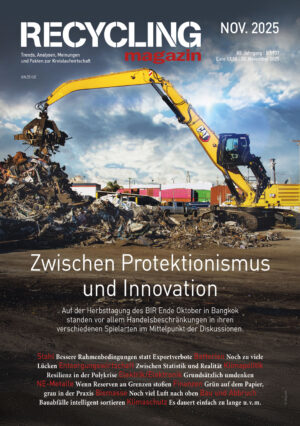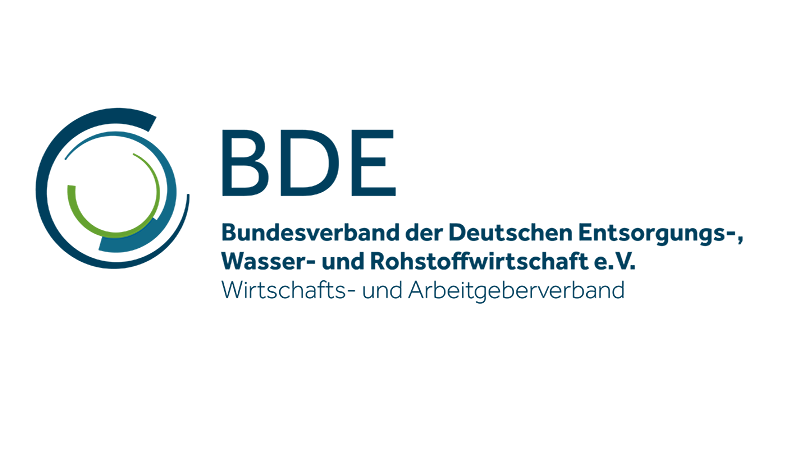The EU-directives impose various obligations on producers who
place their products on any EU market. Registration, reporting as well as organising and financing of the environmentally
sound management of waste from their products are the main
requirements of the EU towards producers.
There is no doubt about the positive effect of these proenvironmental
rules on the separation of waste, increased
waste collection and efficient recycling. The authorities
obliged to transpose these directives into their national
legislation enjoy great freedom in the transposition process.
As a result, one EU directive can have up to 27 variations (e.g.
Waste Electric and Electronic Equipment – WEEE). Taking into
account that most products are subject to more than one
directive, placing a product in the European markets requires
knowledge of quite a number of national regulations on waste.
As there is almost no harmonisation across the Member
States, the difficulties
in ensuring compliance
increase with the number
of countries ser viced by
producers. Differences
occur in terms of scope
of producer obligations,
definitions of products and
their waste, registration
and reporting requirements,
roles of other system
participants, financing
principles, treatment and
recycling requirements,
and monitoring standards,
among others.
This complexity of the
compliance requirements engages considerable resources on the side of the producer
that otherwise could have been invested in the development
of his business.
Multiple producer obligations
The products that seem to raise the most doubts and
questions are electrical and electronic devices. The principles
of producer obligation for e-waste are set out in the EC
Directive 2002/96/EC on Waste Electric and Electronic
Equipment. Apart from that, two other directives have to be
considered for every electric or electronic product placed on
the EU market: the EC Directive 94/62/EC (modified by EC
Directive 2004/12/EC) on Packaging Waste and the new EC
Directive 2006/66/EC on Waste Batteries.
All three directives require the producer to:
t register at the national register,
t ensure financing and organisation of collection, transport,
storage, sorting, re-use, recovery or environmentally
friendly disposal of waste arising from the products they
placed on the market,
t report the quantities sold and the collection and recovery
quantities and / or rates of waste arising from their
products.
In the best case, the producer covers only his homeland
market and has to deal with three national transpositions
of the directives. But for an international company this multiplies with the number of EU markets where their devices
are sold and can reach up to 81 legal documents!
According to the study by United Nations University, the
two most crucial compliance hurdles for the producers are
registering in national registers and reporting. As assessed
in the study, the total administrative burden across EU27
for registering and reporting activities required by WEEE
legislation ranges from EUR 36.7 million to EUR 42.8 million,
if one assumes that eight hours are needed per report.
The following examples from the national transposition of the
WEEE Directive and the Packaging Directive illustrate some
of the differences in the requirements towards the producer:
t Obligation: producer shall register as producer of EEE in
the national register
Example of differing requirements when registering as
producer at the national registers in Poland and Austria:
t Obligation: producer shall report the quantities placed
on the market
Example of variations in terms of the reporting requirements
for products placed on the market in Romania and UK:
t Obligation: producer shall ensure take-back of waste
packaging from end users
Example of different definitions of who the producer is, what
type of packaging waste shall be take-back and from what
end user segment, what compliance options are available,
etc. in Germany and Denmark:
This complexity may increase with the new Battery Directive
that brings along 27 new transposition versions. The
promised standardisation of the registration requirements
does not seem to take place. In addition, the issue of
separating the financial responsibility for WEEE from the
financial responsibly for waste portable batteries that
are sold together with the electronic devise (the so called
“double charging”) may turn out to be another problem.
In the worst-case scenario, the producer has to sign a
contract with a service provider for each type of waste
and in every country. Even if this option offers fulfilment
of producer obligations, the administrative burden of the
contract management remains very high (negotiating the
conditions of every contracts, controlling, invoicing, reporting
in varying reporting systems, etc.). For an internationally
active producer of e-equipment this may amount to as many
as 81 contracts (three compliance providers for three types
of waste x 27 national regulations)!
What producers are looking for are solutions providing
transparent requirements, low administrative burden and
a guarantee of fulfilment of their producer responsibility
– this all at a reasonable cost. Currently, most of existing compliance schemes specialise in the management of one
type of waste and are established in one land. Very few
reverse logistics specialists offer integrated compliance
solutions for several waste types and are able provide their
services in multiple EU countries – this is exactly the solution
sought after by the producers.
At RLG, we have established the necessary expertise and have
taken up this challenge. Today we can offer our international
or internationalising clients
i n t e grated compliance
solutions in many European
countries. Our goal is to
become a complete pan-
European one-stop-shop for
every producer required to
comply under the European
waste directives.
Setting up of an integrated
compliance solution is as
complex as the legislation
according to which such a
scheme is created. Among
many detailed tasks it
specifically requires:
t Constant monitoring of legislation on the European,
national and regional level
t Finding multilingual staff with a good understanding of
local environments
t Organising a nationwide collection network
In particular: contracting or arranging collection sites,
supplying of required collection equipment, connecting
the sites into the central electronic network for reporting,
controlling the collection (waste amounts and types), etc.
t Contracting qualified
treatment and recycling
service providers
In particular: connecting
the facilities into the central
e l e c t r o n i c n e t wo r k f o r
reporting, control of reported
recycling efficiencies, etc.
t Successful application
for scheme approval at
national authorities
t Implementation and
maintenance of central
reporting interface
I n p a r t i c u l a r : d e s i g n ,
i m p l e m e n t a t i o n a n d
ongoing updates of a central
multilingual web-based
system for registration, input
and output reporting, tracking and tracing of every order etc.
t Multinational invoicing & bookkeeping capacity
Depending on the preference of the obliged producer, the
agreement on compliance services can be concluded
between RLG and the producer headquarters (in the
name of the national subsidiaries) or with both, i.e. the
headquarters (frame contract) and the subsidiaries (local
contract).
The contract can be signed for the same product
combination for every subsidiary or have different product
combinations, depending on the individual needs of the subsidiary. Invoicing flow also depends on the wish of
the producer and can follow either from the headquarters
or from the subsidiaries or is divided in parts and each
part paid separately by the headquarters and by the
subsidiaries.
The advantages offered by an integrated compliance scheme
are directly related to what producers need in order to
reduce the complexity of the administrative burdens while
remaining fully compliant.
Conclusion
An integrated EU-wide compliance scheme is the solution
to the enormous complexity of national compliance faced
by the producer. It is able to balance the difficulties caused
by the lacking harmonisation of requirements across the
countries. The hurdles described above can be minimised,
saving the effort, time and money on the side of the
producer. As a direct answer to the producer requirements,
an integrated compliance scheme ensures fulfilment of the
local legal requirements without the necessity to employ
many reverse logistic specialists.










